Hey there! This post contains affiliate links. Using my links means I earn a commission, which helps me create more rad content. More on affiliates here.
In 2016, I finally got a diagnosis for PCOS (Poly Cystic Ovarian Syndrome). I had known something was not quite right for a few years, but I didn’t know what to call it.
CW: This blog post discusses weight gain, weight loss, weight scales, diet/nutrition and frustrating medical care.
Since 2016, I’ve been doing a lot of research and experimenting (more on that in a minute), to figure out how to treat PCOS. Below, I’ve shared:
- Symptoms of PCOS
- How I found out I have PCOS
- Doctors I see for PCOS
- Medication for PCOS
- How I Lowered My Blood Sugar // Discussion of Type 2 Diabetes
- Resources for learning about and treating PCOS
[Heads up! This post uses affiliate links, and you help me earn $$ when you use my links. More on affiliate links here!]
Going Beyond 101
My goal for this post is to offer a sort of “brain dump” of my experience. I’m assuming you’ve already been on WebMD and Wikipedia, so I’m not going to do a deep dive on biology.
Self-Advocacy FTW
Instead, I’ll share my reactions to medications, diet changes and how I advocate for myself in a medical setting.
Navigating healthcare and treatment for chronic conditions is frustrating, to say the least. I hope something in this blog post helps you manage your health.
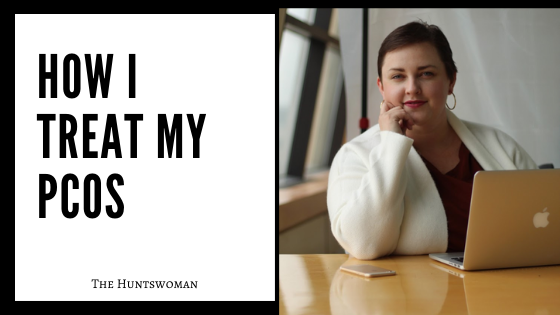
I am not a doctor!
Let me just put this disclaimer right HERE: This blog post is shared based on my personal experience, and I hope it helps provide you with more questions to ask your doctor and medical advisors.
What Are the Symptoms for PCOS? | Facial Hair, Weight Gain, Etc
Most people that I’ve talked with who have PCOS, found out because they gained a good amount of weight over a few years. I gained about 100 pounds from 2013 to 2019. It was frustrating, because I wasn’t living in a way to make that weight gain make sense. I would get on the scale and feel totally… bamboozled.
I gained about 100 pounds from 2013 to 2019.
I could not figure out what was going on.
What are the symptoms of PCOS?
Because I’m going to share medications that treat these symptoms, I figured it was important to revisit them:
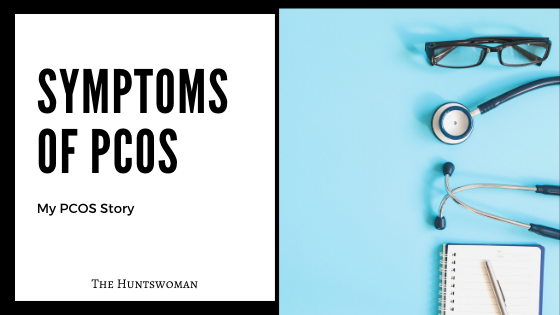
PCOS is a “‘syndrome,” meaning that it’s a bunch of symptoms that add up to be an issue. Symptoms of PCOS are:
- Irregular menstruation or no menstruation
- Facial hair, or excessive hair on the back or buttocks
- Cystic acne
- Thinning hair
- Acanthosis nigricans – darkening of your skin where it folds (neck, upper inner thigh, under breasts, between fingers)
- Infertility
You don’t need every single one of these symptoms to have PCOS. Some people figure out they have PCOS when they have an IUD taken out, or after having their first child.
Now, let’s talk about how to get tested for PCOS.
What Does PCOS do to your body?
PCOS is a fun time (sarcasm) because it can cause a sort of domino effect of health issues in your body.
It can lead to whacked out insulin levels (woo blood sugar) and pre-diabetes. PCOS has been linked to endometrial cancer, heart disease and Type 2 Diabetes. Some studies have linked PCOS to other diseases, but these are the main three you see pop up in PCOS literature.
Once I learned about the health complications from PCOS, I knew I needed to get proactive about my bloodwork, medication and my health.
How to Get Tested for PCOS
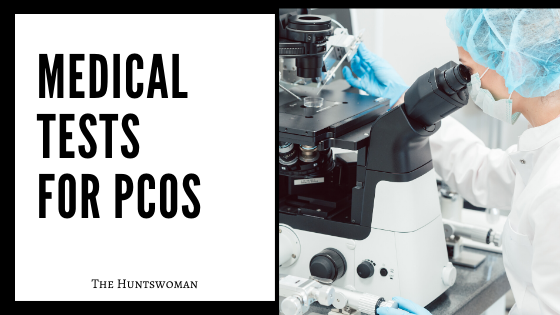
There isn’t a straightforward test to figure out if you have PCOS, so doctors rely on the above physical symptoms as well as blood tests to see what’s going on.
These tests can include (but aren’t limited to):
- Pelvic Ultrasound: Identify cysts on the ovaries
- Bloodwork to measure insulin levels (PCOS can cause insulin resistance or pre-diabetes)
- Hormone tests to identify higher levels of testosterone or androgens
Medical Debate on Diagnosis
There’s a big old debate among doctors as to what symptoms must be present for a diagnosis. I have heard from a number of readers about how they had a doctor tell them they didn’t have PCOS based only on symptoms – only to get an ultrasound and find out they have PCOS! Or how they didn’t have cysts on their ovaries, but had every other symptom.
It’s a cluster.
You can read more about this debate here.
Dealing with Doctors
If you go to a doctor to find out if you have PCOS or not, i would demand that you get the above tests. PCOS is a popular diagnosis to give, and it can lead to a misdiagnosis of other serious health issues.
If the doctor won’t give you a test, go to another doctor. They’re not all-knowing. If you don’t like the care you get, it’s time to switch. You are your own biggest advocate.
Further down I talk more about advocating for yourself in the doctor’s office.
How I Was Diagnosed with PCOS
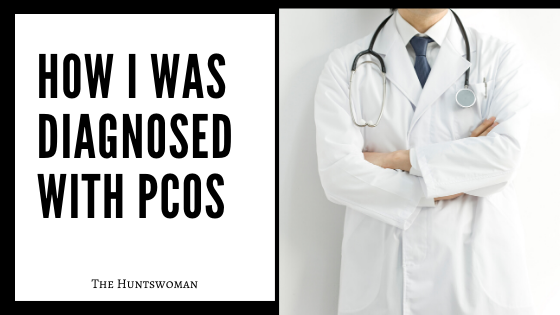
in 2015, I found myself at Vaden, the Stanford Student Heath Center, where I had set an appointment to get my thyroid tested. I couldn’t figure out what was wrong, and I thought I may have hypothyroidism.
The doctor I met with told me within about 10 minutes of my appointment that I should consider weight loss surgery (WLS).
****RECORD SCRATCH SOUND****
WHAT?!
In my opinion, this was an egregious lack of medical care and just so insanely irresponsible. She hadn’t seen my test results. This was the first appointment we had had. We had only been chatting for about 10 minutes. And then, BAM.
A recommendation for an intensive surgery that (plot twist) isn’t an effective treatment for PCOS.
I ended the appointment in absolute tears. The doctor was shaming pointing out my lack of “self-discipline” and was overall just a total a-hole.
This goes back to the terrible treatment that fat people get at the doctor’s office, making it extremely difficult to seek care. If I wasn’t such a cantankerous person, this experience would’ve kept me away from the doctor’s office for years.
But you can’t keep a good betch down!!
Seeing a Dietician

Seeing my distress, the doctor who advised WLS suggested I may want to set an appointment with the campus dietician. She was CONVINCED that I was eating too much.
“Can’t be any worse than you,” I thought to myself. I made an appointment (through tears) on my way out of the office.
I’m so glad I booked that appointment.
It was a totally different experience. The dietician told me that their policy was to follow a “HAES: Healthy at Every Size” approach. (I guess no one told the medical doctor I saw?)
Over the course of the appointment, she had me share what I eat, and after talking together for an hour she said, “You may want to get tested for PCOS.”
A few weeks later, I flew home and got my diagnosis.
Advocating for Yourself at the Doctor’s Office with PCOS
It seems to be a favorite of doctor’s to write a prescription for Metformin and send people on home. Through this process, I’ve learned that I need to have a collaborative relationship with all my doctors, ask questions and be my biggest advocate.
Doctors see people with a variety of issues all day, and they are not motivated in the same way the patient is.
They are not motivated (nor do they have the time, usually) to dig into literature, figure out the latest treatment plans, etc etc.
They usually just write a prescription for BC and metformin, which is like the tip of the iceberg.

Here are some tips to make the most out of appointments and BE HEARD:
- Show up with a list of written questions based on your own research. If a doctor doesn’t take my questions seriously, I leave. And find a new one.
- If you’re looking for a new doctor, consider posting to social media or texting friends and family. I put out a call for an endocrinologist on my Instagram Story this week!
- Have an upfront and blunt family member or friend accompany you to appointments. They can help you feel supported, and you can ask more questions.
- GET REGULAR LABS! This is so so important. If a doctor doesn’t want to give me a lab test, I go to one who will.
- I find the Reddit PCOS forum pretty helpful, and I also read medical studies on the condition through Google Scholar.
Okay, now I’d like to share the various treatments I’ve tried for PCOS:
Part 2: Treating My PCOS
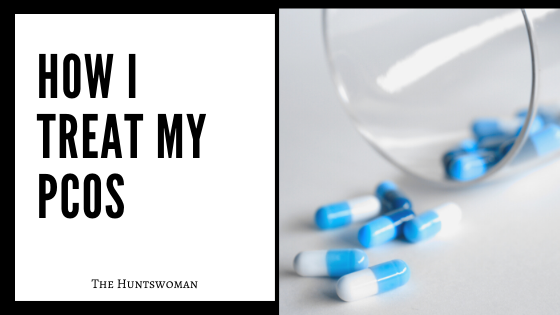
In this section, I am going to share my experience with doctors and the medication and supplements/vitamins I take to treat PCOS. Take from it what you will!
As always, the goal here is for you to have better questions to ask your doctor.
Treatment Phase 1: Birth Control
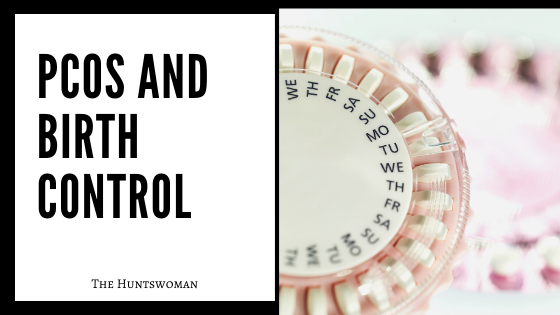
As part of the treatment protocol for PCOS, my doctor prescribed Birth Control. This was prescribed to tackle the higher levels of testosterone in my system.
And I had a godawful reaction. I slept for almost 2 weeks straight, couldn’t get out of bed and was super emotional.
After that experience, I decided I was done with birth control. I also decided not to include BC in my PCOS treatment plan, because of the longterm side effects (and a shortage of longterm peer reviewed studies) of birth control.
I’m not a doctor, so I’ll let you do the research yourself. All in all, I know birth control isn’t for me.
Treatment Phase 2: Metformin, Progesterone and Spironolactone
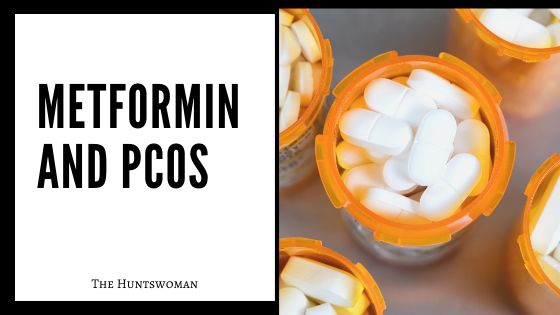
I’m embarrassed to admit that after my terrible BC experience I didn’t continue seeing a doctor for PCOS. It felt like a Sisyphean task to self-advocate, research and talk to other people.
You know what’s more fun than researching a chronic condition? Literally ANYTHING ELSE.
But after doing my “year in review” for 2018, I realized that I needed to prioritize getting a treatment plan together.
GP to Gynecologist
After my issue with BC, I decided to start seeing an OB/GYN. I went to a gynecologist in Salt Lake City who is known for her work in the LGBT community. Most of the OB/GYNs I found focused on PCOS and fertility, and that’s really not a concern for me.
At my first appointment I showed up with a list of questions and potential treatment options, all listed out of my laptop. I really struggle advocating for myself in a medical setting, so having a list to go back to is really helpful. When I’m in a doctor’s office all I want to do is smile, nod and GTFO!!
I was pretty adamant about not wanting birth control, so I was prescribed the following:
- Progesterone for testosterone/androgen levels
- Metformin for blood sugar/insulin issues
- Spironolactone for unwanted facial hair
Pre-Diabetic with PCOS
I was also diagnosed as pre-diabetic, which freaked me right out. People in my family who have Type II Diabetes have had a terrible time of it, and I really didn’t want to go down that road at all.
But I felt stuck. I knew that I needed to investigate the impact of food on my blood sugar, but I was really freaked out about going on a ~diet~. The Diet Industrial Complex is a multi-billion dollar a year industry, and I had dumped a lot of money into it before finding body positive and fat liberation politics.
“How am I supposed to analyze and change eating without going bananas and getting sucked back into yo yo dieting??” I asked myself.
Treatment Phase 3: Metformin XR & Finasteride
I put my feelings on food on hold for a minute, and focused on meds. Metformin can have some pretty gnarly effects on the body (ahem), so I switched to Metformin XR.
I also replaced Spironolactone with Finasteride, because I was still seeing facial hair growth. TBD on Finasteride working.
I went off of Progesterone based on bloodwork. (Yippee!)
Treatment Phase 4: FOOD!!

Okay, now it was time to tackle food.
As I did more research on PCOS, I figured out that the role that my eating played into my symptoms and health. Especially carbohydrates and sugary foods.
Oooo boy.
Carbs and sugary foods can lead to spikes in insulin which exacerbate PCOS and its impact on one’s hormones. But this medical advice sets off all of my “ALERT ALERT! BS DIETING TIPS AHEAD!” radar.
Dietician, Body Positivity & Food Decisions
I don’t want to be a diet industrial complex fangirl (yo yo dieting is NOT IT), and I struggled to figure out how to follow both my body positive political ideals, while also not wanting to lose a part of my foot to insulin issues.
So I started seeing a dietician, who recommended lowering my carbohydrate intake by a LOT. (Her recommendations are pretty close to the book “Insulin Resistance Diet,” which I bought a couple of years ago at the recommendation of a friend. This is definitely a diet book, but if you feel prepared to take what works and leave the BS behind, I’d recommend it.)
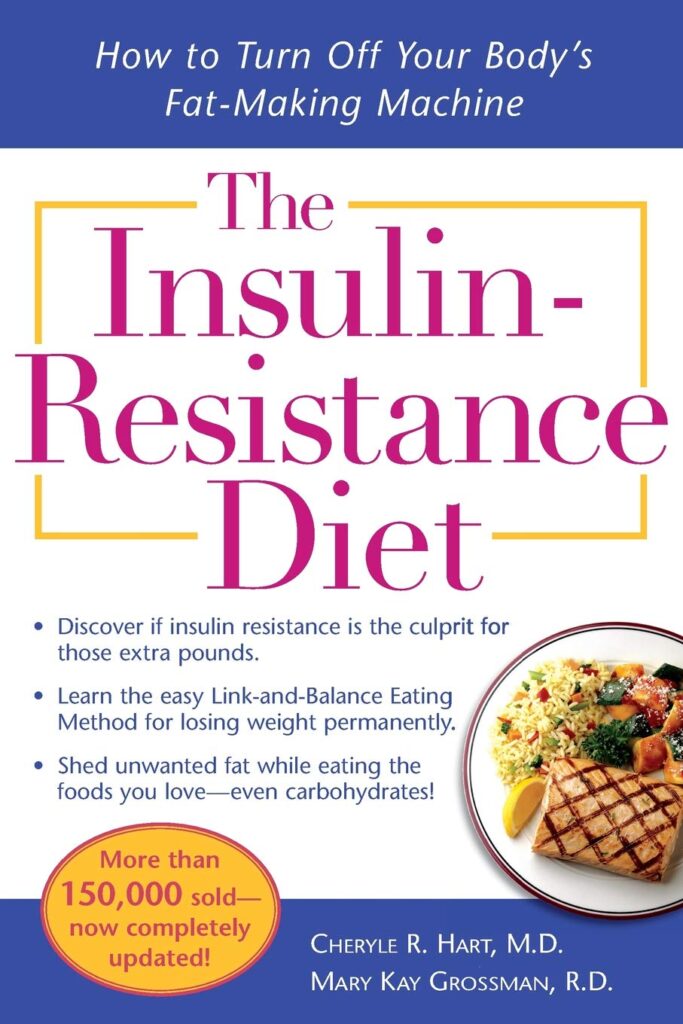
I haven’t found a middle ground, and I don’t know that I will. Most politically body positive folks will tell you that restricting any food group is terrible. And I am still trying to figure out how I feel about alllll of this.
A Solution? Prioritizing Bloodwork
Instead of focusing on “good” or “bad” foods, I decided to focus on making changes that can be tracked via bloodwork. I’ve been getting regular bloodwork to monitor my hormone levels and insulin, and I’ve really focused on the impact that food will have positively impact my bloodwork.
PCOS & Weightloss
Because I’ve lowered my carb intake, I have started to lose weight. This makes things more complicated, as I’m not sure how to talk about that or approach it with my body positive readers, who I adore.
It’s complicated!!
Treatment Phase 5: Supplements for PCOS – TBD
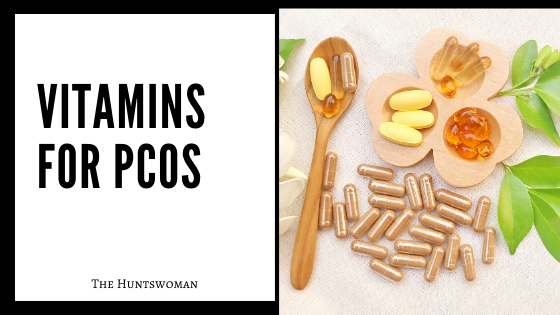
I’ve started poking around and researching supplements for PCOS, specifically to help with my androgen levels and hair growth.
I’m trying a few things out, and I’ll update this post in a few months with my thoughts on different vitamins and supplements for PCOS.
I’m trying Nutrafol for Men ($88 for 1 month on Amazon), and I’m going with the men’s supplement because it is branded for the same hormones that cause PCOS issues.
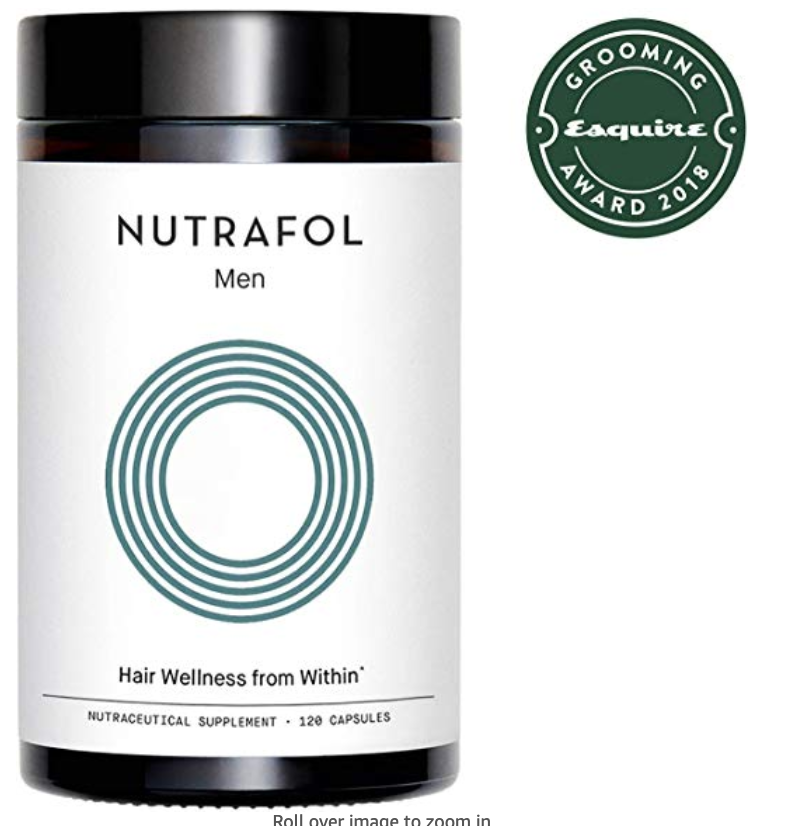
When buying vitamins online, I make sure to only purchase directly from the company – as fakes abound on the internet!
I chose this supplement because it has a lot of the vitamins that I found recommended by Dr. Internet. I’ll continue to get blood tests as I take this, and I’ll let y’all know what I think!
Do You Have Info to Share?
I so appreciate it when other people with PCOS send me studies, info and what treatments they’re trying! If you have a resource you’d like to share, drop me a line here!
Keep Up with My PCOS Journey
If you want to stay up-to-date on my PCOS journey, I recommend joining me on your favorite social media platform (Facebook, Instagram or Twitter), where I regularly talk about PCOS.
More of an email kind of person? Subscribe here!
[FTC Notice: This post contains affiliate links, meaning I earn a small commission if you purchase a product through my link. Affiliates help me write more great content, and I only endorse products I truly love.]













